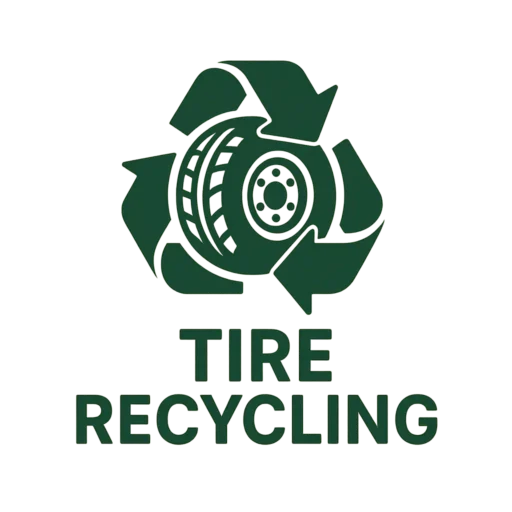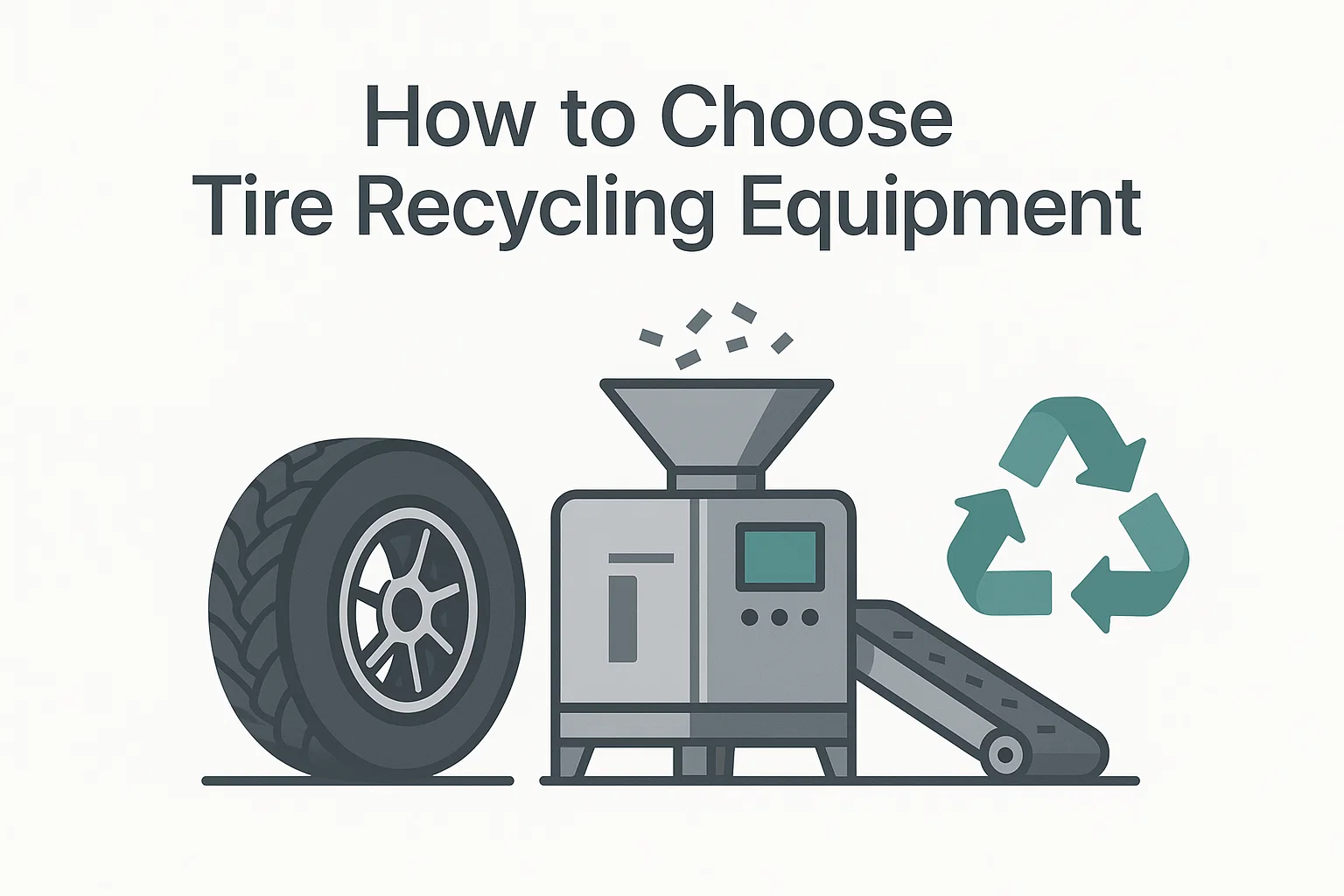Making a Strategic Investment in Tire Recycling
The global push for sustainability has transformed the tire recycling industry into a highly lucrative sector. Successfully converting mountains of scrap tires into valuable resources like crumb rubber, steel, and tire-derived fuel (TDF) depends almost entirely on the quality and suitability of your processing equipment. Choosing the right machinery is not just a purchase; it is a foundational business decision that impacts production efficiency, product quality, operational costs, and long-term profitability.
For both new entrants and established operators, navigating the complex market of tire recycling equipment can be daunting. This comprehensive guide provides a structured approach to selecting the ideal machinery for your specific business needs, ensuring you make a well-informed and strategic investment.
Step 1: Define Your Business Objectives and Production Goals
Before evaluating any specific machine, you must first clarify your business plan. A clear mandate with detailed information on your goals is a prerequisite for a successful technology evaluation. Ask yourself these critical questions:
- What is your target feedstock? Will you primarily process passenger car tires, larger truck tires, or heavy-duty off-the-road (OTR) tires? The size and type of tires will dictate the required specifications for your primary shredder and other initial processing equipment.
- What is your desired end product? Are you aiming to produce large-cut tire chips for TDF, wire-free rubber mulch, fine crumb rubber for sports turf, or rubber powder for manufacturing? The purity and size of your final product will determine which machines—such as granulators, fiber separators, and fine grinding mills—are necessary for your production line.
- What is your required processing capacity? You must determine your target daily or hourly throughput in tons. This will be a primary factor in selecting equipment that can meet your current production needs and accommodate future growth.
Step 2: Understand the Key Machinery and Their Specifications
A complete tire recycling line consists of several integrated machines. Understanding the function and key technical specifications of each is crucial for making the right choice.
- Tire Shredders: This is the heart of the recycling plant, responsible for the initial size reduction. When evaluating shredders, consider the cutting chamber size, motor power (HP), and blade quality. High-quality blades made from durable alloys will have a longer lifespan and reduce replacement frequency, directly impacting your maintenance costs.
- Granulators: These machines refine shredded tire chips into uniform rubber granules. Key specifications include the rotor design, screen size (which determines output particle size), and throughput capacity. Precision and consistency are vital for producing high-value crumb rubber.
- Separation Systems: Efficiently separating rubber, steel, and fiber is essential for maximizing revenue. Evaluate the effectiveness of magnetic separators for steel removal and fiber separation systems (often using air classification and vibrating screens) for textile removal. The goal is to achieve the highest possible purity for each material stream.
- Automation and Control Systems: Modern recycling lines can be semi-automatic or fully automatic. Fully automated systems with integrated PLC (Programmable Logic Controller) controls can enhance efficiency, reduce labor costs, and ensure consistent product quality.
Step 3: Evaluate the Total Cost of Ownership (TCO)
The initial purchase price of the equipment is only one part of the overall investment. A thorough cost analysis should include the Total Cost of Ownership to understand the long-term financial implications.
- Initial Investment: Obtain detailed quotes from multiple suppliers, ensuring they include all costs such as shipping, installation, and commissioning. Prices for machinery can vary significantly based on capacity and technology, with primary shredders ranging from $20,000 for small-scale models to over $100,000 for large industrial units.
- Operational Costs: Factor in ongoing expenses like energy consumption, labor requirements, and wear-and-tear parts. Opting for energy-efficient models can lead to substantial savings over the equipment’s lifespan.
- Maintenance Requirements: Regular maintenance is essential for longevity and performance. Inquire about the recommended maintenance schedule, the cost of replacement parts (especially shredder blades), and the ease of access for servicing. A well-maintained machine minimizes costly downtime.
Step 4: Scrutinize and Select a Reliable Supplier
Your equipment supplier is more than a vendor; they are a long-term partner in your success. Thoroughly vet potential manufacturers and suppliers based on the following criteria:
- Reputation and Experience: Choose a manufacturer with a proven track record in the tire recycling industry. Look for case studies, client testimonials, and industry references to gauge their reliability and the performance of their equipment.
- Technical Support and After-Sales Service: Technical issues can arise, and reliable support is crucial. Confirm that the supplier offers comprehensive after-sales service, including technical assistance, readily available spare parts, and operator training.
- Warranty and Guarantees: A solid warranty provides protection against unforeseen defects and offers peace of mind. Clarify the terms of the warranty coverage for all major components.
- Compliance with Standards: Ensure the equipment meets international and local safety and environmental standards. This includes features like proper machine guarding, emergency stops, and systems for dust and noise mitigation.
Conclusion: Building an Efficient Future with the Right Partner
Choosing the right tire recycling equipment is a strategic process that requires careful planning and thorough evaluation. By first defining your business goals, then meticulously assessing machinery specifications, total ownership costs, and supplier reliability, you can build a recycling plant that is not only productive but also highly profitable.
At Rumtoo, we specialize in providing high-performance, durable, and efficient tire recycling machinery tailored to the needs of the international market. Our team of experts is dedicated to helping you select the ideal equipment configuration to meet your production targets and achieve a strong return on your investment. We provide robust solutions and comprehensive support to ensure your success in the growing circular economy.
Contact us today to discuss your project requirements and receive a detailed quote from our industrial machinery consultants.

